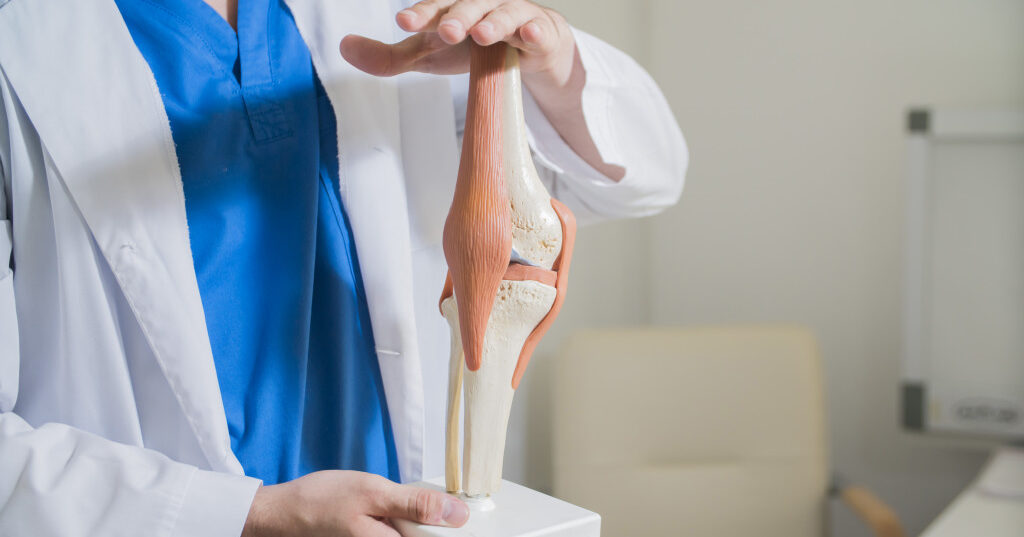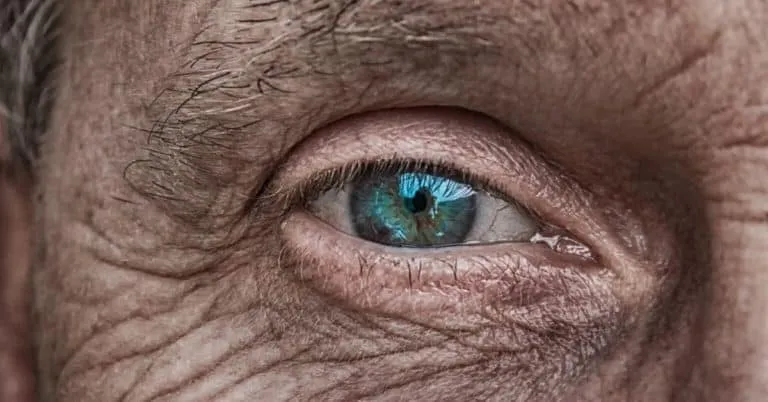Why Caring for Your Bone Health Should Be a Priority
Have you ever stopped to think about the incredible work your bones do for you every day? From providing structure and support to allowing movement and protecting vital organs, our bones are the unsung heroes of our bodies. Yet, we often take them for granted until they start to show signs of wear and tear.
This is why caring for your bone health should be a top priority. As someone who has experienced the consequences of neglecting bone health firsthand, I am here to shed light on the importance of this often-overlooked aspect of overall well-being.
Understanding Bone Health and Osteoporosis
When we think about health, we tend to focus on our heart, lungs, and muscles, but our bones deserve just as much attention. Osteoporosis, a condition characterized by weakened and brittle bones, affects millions of people worldwide, particularly women as they age. It is estimated that one in three women and one in five men over the age of 50 will experience osteoporotic fractures in their lifetime.
The impact of osteoporosis goes far beyond mere bone fractures. It can lead to a significant decrease in mobility, independence, and overall quality of life. Watching a loved one struggle with the challenges of osteoporosis opened my eyes to the profound effects it can have. Simple tasks like walking, lifting objects, or even getting out of bed become daunting obstacles. It becomes a constant battle to maintain an active and fulfilling lifestyle.
The Marvelous World of Bones
To truly appreciate the importance of bone health, let’s take a moment to marvel at the intricate world within our bodies. Our bones are not just lifeless structures; they are living, dynamic tissues that undergo constant remodeling throughout our lives. They provide a framework for our bodies, protect our vital organs, and act as a mineral reservoir for calcium and other essential nutrients.
The process of bone formation and remodeling is truly remarkable. Our bodies continuously break down old bone tissue and replace it with new bone, ensuring strength and adaptability. However, as we age, this delicate balance can be disrupted, leading to a loss of bone density and increased vulnerability to fractures. Personally experiencing the significance of bone health in maintaining an active and mobile lifestyle made me realize how essential it is to prioritize this aspect of our well-being.
Risk Factors for Bone Health Issues
While some risk factors for bone health issues, such as age, gender, and genetics, are beyond our control, there are lifestyle choices that play a significant role. Sedentary habits, a lack of exercise, and poor nutrition can all contribute to bone loss and increased susceptibility to osteoporosis.
It is crucial to acknowledge and address these risk factors, taking control of our bone health destiny. It may seem overwhelming, but even small changes in our lifestyle can have a profound impact on the strength and resilience of our bones. Through my personal journey of overcoming the odds and prioritizing bone health, I discovered that it is never too late to start.

Tips for Maintaining Strong and Healthy Bones
As someone who has embarked on a transformative journey towards better bone health, I am excited to share with you some practical tips and strategies to keep your bones strong and healthy as you age. By incorporating these recommendations into your lifestyle, you can make a significant impact on your bone density and overall well-being.
- Balanced Nutrition: Nourish Your Bones from Within Proper nutrition plays a crucial role in maintaining strong bones. Ensure you have an adequate intake of calcium, which is vital for bone density. Good sources of calcium include dairy products, leafy greens, almonds, and fortified foods. Additionally, vitamin D is essential for calcium absorption. Soak up some sunlight or consider supplements to meet your vitamin D needs.
- Weight-Bearing Exercises: Building Bone Strength Engaging in weight-bearing exercises is an excellent way to build and maintain bone density. These activities put stress on your bones, stimulating them to become stronger. Walking, jogging, dancing, and weightlifting are all effective options. Find activities that you enjoy and make them a regular part of your routine.
- Fall Prevention: Protect Your Bones from Injury Falls can be especially dangerous for individuals with weakened bones. Take precautions to reduce the risk of falls and protect your bones from fractures. Ensure your living space is well-lit, remove tripping hazards, and install handrails in areas where balance may be a concern. Engage in balance and flexibility exercises to enhance stability and prevent falls.
- Avoid Harmful Habits: Preserving Bone Health Certain habits can have a detrimental effect on your bone health. Smoking, for instance, has been linked to decreased bone density and increased fracture risk. Excessive alcohol consumption can also weaken bones. If you smoke, consider quitting, and limit alcohol intake to moderate levels for optimal bone health.
- Engage in Enjoyable Activities: Sustaining Motivation One of the keys to maintaining a bone-healthy lifestyle is finding activities that you genuinely enjoy. Whether it’s dancing, swimming, gardening, or practicing yoga, incorporating activities that bring you joy will make it easier to stay active and committed to your bone health regimen. Remember, exercise doesn’t have to feel like a chore—it can be a delightful experience.
By following these tips, you can significantly improve your bone health and reduce the risk of osteoporosis-related complications. Remember that consistency is key. Make bone health a priority in your life, and you will reap the rewards of stronger, more resilient bones that support you throughout your journey.
Seek Professional Advice and Screenings
While adopting healthy habits is crucial for maintaining bone health, it is equally important to seek professional guidance and undergo regular screenings. Healthcare professionals play a vital role in assessing your bone health, providing personalized recommendations, and detecting potential issues before they escalate.
- Consultation with Healthcare Professionals Schedule regular visits with your primary care physician or a specialist, such as an endocrinologist or rheumatologist, to discuss your bone health. They can evaluate your risk factors, review your medical history, and offer personalized advice on nutrition, exercise, and lifestyle modifications tailored to your specific needs. Their expertise will help you make informed decisions regarding your bone health journey.
- Bone Density Screening Bone density screenings, such as dual-energy X-ray absorptiometry (DXA) scans, are essential for early detection and monitoring of bone loss. These painless and non-invasive tests measure the density of your bones and assess your fracture risk. By identifying potential concerns in their early stages, you can take proactive steps to prevent further bone deterioration.
- Medication and Treatment Options In some cases, healthcare professionals may recommend medication or other treatments to manage or slow down bone loss. Medications like bisphosphonates, hormone therapy, and selective estrogen receptor modulators (SERMs) can help improve bone density and reduce fracture risk. It is essential to discuss the potential benefits and risks of these treatments with your healthcare provider to make an informed decision.

Through my own bone health journey, I discovered the tremendous value of seeking professional advice and undergoing regular screenings. Consulting with a knowledgeable endocrinologist allowed me to better understand my bone health status and identify areas of improvement. With their guidance, I developed a comprehensive plan that included targeted exercises, dietary adjustments, and appropriate supplementation. Regular bone density screenings served as crucial checkpoints, providing valuable insights into the effectiveness of my efforts.
The support and guidance I received from healthcare professionals empowered me to take control of my bone health and make informed decisions. Their expertise, combined with my commitment to implementing lifestyle changes, played a pivotal role in my journey towards stronger and healthier bones.
Embracing an Active and Bone-Healthy Lifestyle
As we conclude this exploration of bone health, let us celebrate the progress we have made and encourage the continuation of an active and bone-healthy lifestyle. Remember, this journey is not just about prevention; it is about embracing a fulfilling and vibrant life.
- Stay Committed to Exercise Regular physical activity remains a cornerstone of bone health. Maintain a consistent exercise routine that includes a combination of weight-bearing exercises, strength training, balance and flexibility exercises, and cardiovascular activities. Engaging in these activities will not only support your bone health but also contribute to overall physical and mental well-being.
- Supportive Nutrition Continue to prioritize a well-balanced diet rich in calcium, vitamin D, and other essential nutrients. Consider incorporating bone-healthy foods such as dairy products, leafy greens, fortified cereals, fatty fish, and nuts into your meals. Aim for a diet that supports bone health while providing overall nourishment for your body.
- Mindful Aging As we age, it is crucial to approach physical activities mindfully. Pay attention to your body’s signals, adapt exercises to your capabilities, and listen to any discomfort or pain. Engaging in activities like yoga or tai chi can help improve balance, flexibility, and mindfulness.
Embracing a New Lease on Life through Bone Health Practices My personal journey towards better bone health has been transformative. By embracing an active lifestyle, prioritizing nutritious foods, and seeking guidance from healthcare professionals, I have experienced a renewed sense of vitality and joy. Engaging in activities like
cycling, hiking, and dancing has become a source of immense pleasure and fulfillment. I have discovered the incredible capabilities of my body and the resilience of my bones.
More importantly, I have come to appreciate the profound connection between bone health and overall well-being. Taking care of my bones has not only improved my physical strength but has also enhanced my mental and emotional resilience. The sense of empowerment that comes from knowing that I am actively investing in my long-term health is truly empowering.
As we age, it is natural for our bodies to undergo changes. However, by prioritizing bone health, we can defy the limitations often associated with aging. We can maintain our mobility, independence, and zest for life. It is never too early or too late to start caring for your bones. Remember, every small step you take towards bone health today will have a significant impact on your future.
Conclusion
In conclusion, caring for your bone health should be a priority in your life. Through personal experiences, we have explored the importance of understanding bone health and its impact on overall well-being. We have marveled at the incredible nature of bones and acknowledged the risk factors for bone health issues. Moreover, we have provided practical tips and strategies to maintain strong and healthy bones, including balanced nutrition, weight-bearing exercises, fall prevention, and avoiding harmful habits.
Additionally, we have emphasized the significance of seeking professional advice and undergoing regular bone density screenings. The guidance and support of healthcare professionals can make a substantial difference in your bone health journey. Finally, we have encouraged you to embrace an active and bone-healthy lifestyle, continuing to prioritize exercise, nutrition, and mindful aging.
By making bone health a priority, you are investing in a future of strength, mobility, and vitality. Take the first step today, and let your journey towards optimal bone health begin. Remember, you have the power to shape the health and well-being of your bones, and they will support you every step of the way.








